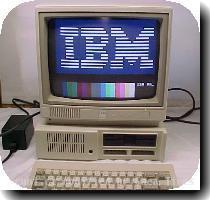Stocks slide on mixed data on housing, consumers; IBM boosts its outlay for stock buybacks
By Tim Paradis, APTuesday, October 27, 2009
Stocks mostly slide on mixed data; IBM lifts Dow
NEW YORK — Stocks mostly fell Tuesday as mixed reports on home prices and consumer confidence gave investors little incentive to step into the market.
A decision by IBM Corp. to double its stock-repurchase plan propped up the Dow Jones industrials, but the Nasdaq composite index fell after Baidu Inc., the Chinese Internet search company, warned its revenue could take a hit as it switches its advertising system. Falling stocks outpaced those that rose.
Bond prices rose after strong demand at a government debt auction.
Stocks rose at the start of trading following a report that home prices in 20 major metropolitan markets increased for the third straight month in August. The Standard & Poor’s/Case-Shiller home price index gained 1 percent in August from July.
That wasn’t enough to offset worries that consumers might not be in a mood to spend this holiday season. The Conference Board said its Consumer Confidence Index fell unexpectedly to 47.7 in October, its second-lowest reading since May. Analysts predicted a figure of 53.1.
Worries about consumers have been around for a while, but they took some of the sheen off corporate profit reports for the July-September quarter, which have been coming in ahead of expectations.
“When I look at the consumer, I think that is the next big test,” said Dave Hinnenkamp, chief executive KDV Wealth Management in Minneapolis. “We’ve passed a big test on the earnings front.”
In the final hour of trading, the Dow Jones industrial average rose 30.84, or 0.3 percent, to 9,898.80. The broader Standard & Poor’s 500 index fell 1.18, or 0.1 percent, to 1,065.77, while Nasdaq fell 21.32, or 1 percent, to 2,120.53.
Bond prices rose after a Treasury Department auction of $44 billion in two-year notes drew robust demand. That pushed yields lower. The yield on the two-year note rose fell to 0.95 percent from 1.04 percent late Monday. The yield on the benchmark 10-year Treasury note fell to 3.48 percent from 3.56 percent.
Stocks have fallen in four of the past five days on worries about the economy. The Dow dropped 104 points Monday after a similar slide Friday. It was the first consecutive triple-digit loss for the Dow since mid-June.
The latest drops came as a strengthening dollar pushed the prices of commodities lower. The dollar mostly rose again Tuesday but didn’t dominate trading.
Analysts say the coming days could be choppy as traders look for fuel to extend the market’s climb. The down days are welcome by those who say the advance has been too quick. The S&P 500 index is up 57.7 percent since March but down from the start of last week when it touched its highest level in more than a year.
Frank Ingarra Jr., co-portfolio manager at Hennessy Funds in Stamford, Conn., said the market is about where it should be but could stall if more companies can’t show they will boost profits by bringing in more revenue not just slashing costs.
“We have a pretty good valuation here. To propel us to go forward we need to have good top-line growth and you’re just not seeing it,” he said.
The end of the month could also present hurdles for investors. For many mutual funds, the last trading day of their fiscal year is Friday. Fund managers looking to minimize taxes for shareholders could sell some of their investments.
Investors are also looking to the government’s first reading on economic output for the third quarter. The report on gross domestic product is due Thursday and could signal an end to the recession that many analysts have said is over, at least officially.
Joe Battipaglia, market strategist for the private client group at Stifel Nicolaus & Co. in Yardley, Pa., said recent economic data don’t support arguments for a fast recovery in the economy, nor do they suggest a rebound would be weak enough to push stocks back down to the levels of eight months ago.
“We are in what I would call purgatory right now where the U.S. economy is rather limp,” he said.
Crude oil rose 87 cents to settle at $79.55 per barrel on the New York Mercantile Exchange.
IBM, one of the 30 companies that make up the Dow, rose after it added $5 billion to its stock repurchase fund. The total now stands at $9.2 billion. The stock advanced 57 cents, or 0.5 percent, to $120.68.
Baidu’s American Depositary shares slid $52.73, or 12.2 percent, to $380.24 after it its warning about revenue.
Two stocks fell for every one that rose on the New York Stock Exchange, where volume came to 1.2 billion shares compared with 1.1 billion Monday.
The Russell 2000 index of smaller companies slid 3.52, or 0.6 percent, to 590.16.
Britain’s FTSE 100 rose 0.2 percent, Germany’s DAX index fell 0.1 percent, and France’s CAC-40 slipped less than 0.1 percent. Japan’s Nikkei stock average fell 1.5 percent.
Tags: Commodity Markets, New York, North America, Prices, United States

